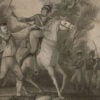
The appearance of a government-sponsored Putin 2012 cyrillic websites pretty much clinches the major question in Russian politics: Will Prime Minister Vladimir Putin, “National Leader” and the former President of Russia, run for (and, by definition, win) the Russian presidency? There are no “Medvedev 2012” websites registered so far.
In addition to Putin’s none-too-subtle references to Franklin Roosevelt’s four terms in office while in Sochi a couple of weeks ago, the appearance of these websites answers the question of who is running for Russia’s presidency: Putin. And no one else. If so, Europe and U.S. reaching out to the placeholder president, Dmitry Medvedev, may have been politically imprudent.
The Russian Constitution states that a president can hold office for no more than two consecutive terms. Putin, who was president in 2000–2008, and has spent the last two years as a prime minister, has shifted some of the presidential powers to the office of the Prime Minister. Other powers he exercises because of his sheer political clout. His loyal junior ally Mr. Medvedev is handling mostly ceremonial duties and foreign contacts, while Mr. Putin is making all the key decisions.
Furthermore, under Medvedev, changes to the Constitution have expanded presidential terms to six years, meaning that, if elected in 2012, Putin is likely to rule Russia until 2024.
Putin recently was in full campaign mode: Russian media interpreted his highly publicized accounts of flying a firefighting aircraft in the pilot’s seat as early campaigning. He also appeared at a biker rally in the Crimea (“The bike is a symbol of freedom,” proclaimed Putin to the roar of approval); and took a long trek through the Russian Far East in a yellow Russian-made Niva car.
In fact, as this author pointed out a number of times, Putin never relinquished power. He has hinted at his interest in returning to the presidency almost since the beginning of Medvedev’s term. These speculations have been more common and serious recently, with Putin dropping hints at the 2010 Valdai conference in Sochi and during an interview with the Kommersant newspaper in late August. As Time Magazine said, “Putin’s Russia remained Putin’s Russia.”
For the United States, missing this point was a major foreign policy blunder. The Obama Administration has strongly preferred to deal with President Medvedev, an authoritarian reformer of a more pro-Western persuasion and a known taste for iPads and Twitter, but a man whose political capital is tightly controlled by his mentor and boss, Putin.
With the New START treaty, nuclear summitry, and the “reset” button being firmly anchored to Medvedev’s fortunes, the Obama Administration convinced itself that there is a real rapprochement between U.S. and Russian governments.
As we said for a long time , however, it is Mr. Putin—no friend of America—who calls the shots. This assumption may prove to become a bitter disappointment—and a serious foreign policy blunder.




























